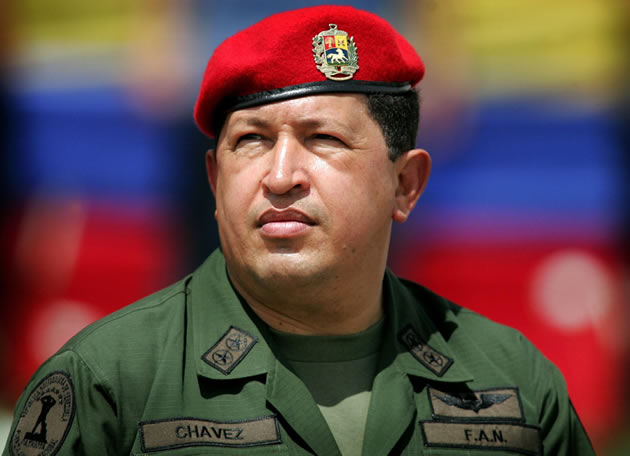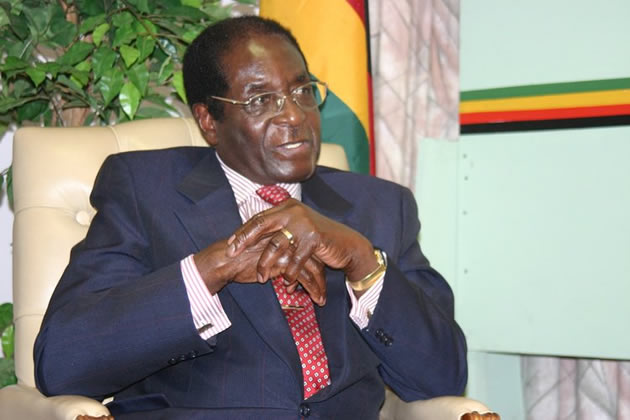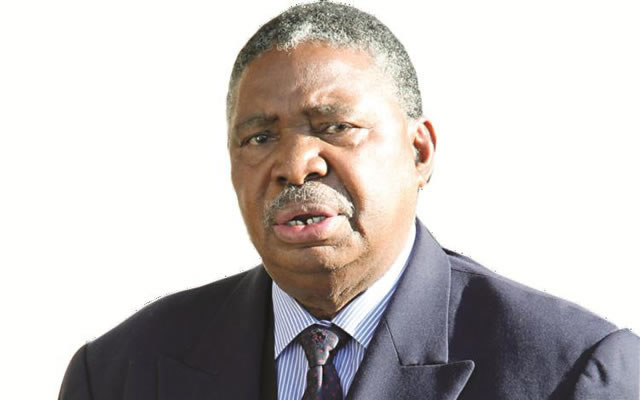We are Chavez, We are Mugabe!

America has found no shame at all in declaring these two peaceful countries as warranting “a national emergency with respect to the unusual and extraordinary threat to the national security and foreign policy of the United States . . .”
A piece of news from Latin America may not excite our audiences very much.
So indeed the news that the opposition in Venezuela recently won a majority of seats in the National Assembly, overturning nearly two decades of dominance by the Socialists of President Nicolas Maduro may have escaped many.
Maduro succeeded Hugo Chavez who died of cancer two years ago.
Chavez got into power in 1999 and initiated a socialist revolution dubbed the Bolivarian Revolution, a tribute to Simon Bolivar, the revolutionary patriarch of South America.
Chavez’s socialist programmes, which put the poor at the forefront in terms of the means of production, chiefly land, and redistribution of oil wealth to close the most glaring poverty gaps on the continent put him at cross-purposes with the United States of America.
Quite predictably.
Roger D. Harris writing in 2013 puts a context to this illustrating “Venezuela (as a) Threat of a Good Example”.
He explains: “Venezuela remains on the top six list of the US National Security Agency’s ‘enduring targets’. In the upside-down logic of the Obama administration, Venezuela ‘constitute(s) an unusual and extraordinary threat to the national security and foreign policy of the United States.’ In reality Venezuela is subject to US military presence in Colombia to the west, US military bases to the east on Aruba and Curacao, and the US Fourth Fleet off of its coast. The US State Department cites Venezuela along with Ecuador, Argentina, Bolivia, and Nicaragua among a group of Latin American countries . . .”
By the way, Chavez inspired a number of Latin American countries with his Bolivarian revolution.
At home and abroad here is what he championed: “The progressive government has eradicated illiteracy, halved poverty, and introduced new forms of direct democracy such as community councils. Internationally Venezuela has played a leading role in regional integration of Latin America with UNASUR, CERLALC, andALBA, promoted fair trade, and maintained peace with its neighbours including helping to broker the current peace talks between the Colombian government and the FARC (rebels) . . . Venezuela has funded its social programmes from oil revenues.”
The US imposed sanctions, the latest early this year, on Venezuela for being such a good example.
It is explained that, “The new US sanctions are a continuation of the long-term US campaign to roll back the social advances in Venezuela, curtail its independence, terminate its international leadership, and obliterate its example of an alternative to the neoliberal world model.”
The sanctions were meant to cause suffering among the Venezuelan populace and prop the opposition that lost in successive elections since 1998, despite having a war chest of a reported $100 million of American money.
A coup attempt was even attempted in April 2002. Pressure from the US on Venezuela’s economy, which saw massive shortages of basic commodities and services, finally led to the buckling of the Chavez dream seeing his predecessor Nicholas Maduro superintending defeat at the weekend by over two thirds to the opposition.
Gone is the unique status quo where “the poor celebrate their government and the rich protest”.
It is noted that the unrest of 2014 “was almost entirely limited to rich and middle class neighbourhoods”.
This is what happens when a visionary, pro-majority person leads a nation; a people.
The same fate also to befall leaders who upset the capitalist apple-cart.
I am Chavez
A blog, Venezuelan analysis summarise the success of Chavez as follows: “The accomplishments of the Bolivarian Revolution to date are many: land distributed to the landless, poverty rate halved and extreme poverty reduced by two-thirds, child malnutrition reduced, access to safe drinking water increased, etc. Social expenditures have been increased and pensions for the elderly went from less than 400 000 recipients to over to two million, while hundreds of thousands of new homes were built for those in slums.”
When Chavez died the majority poor were devastated.
They wished and hoped the spirit of Chavez would last forever.
They did not embrace Chavez as a person but an idea, an immortal.
This is why they had the slogan, which featured everywhere, that, “I am Chavez”.
I am Mugabe
When you read the above, you cannot miss the similarities between Venezuela and Zimbabwe; Chavez and Robert Mugabe.
The only difference is that, happily, the US-sponsored opposition in this country has not won after a similar number of attempts.
It should be hoped it won’t.
But then there is something worrying, both leaders are mere mortals for all their enduring and revolutionary ideals.
In Venezuela, Maduro was once considered a strongman, with his military background, but he could not stop the wave of attacks from the US by dint of being not the originator of the battle.
It will be interesting
The same sanctions they have suffered, Zimbabwe has suffered.
The sanctions are worded in the devilishly deceptive language and alleged pursuit of the so-called human rights.
America has found no shame at all in declaring these two peaceful countries as warranting “a national emergency with respect to the unusual and extraordinary threat to the national security and foreign policy of the United States . . .”
Yes you heard right!
But it is not the physical person or the physical country.
It is the ideas that so much make even superpowers like America quake in the boots.
This is why they are afraid of the Chavez idea.
This is why they are afraid of the Mugabe idea.
That is why we are all Chavez and Mugabe!










Comments